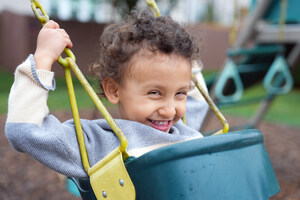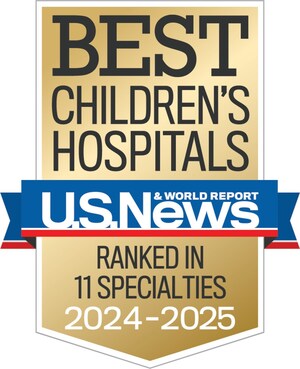CINCINNATI, Oct. 30, 2012 /PRNewswire-USNewswire/ -- As the nation watches the reports about the devastation that Hurricane Sandy has caused to those who live on the East Coast, many people are filled with emotions of anxiety and sadness.
(Logo: http://photos.prnewswire.com/prnh/20110406/MM79025LOGO )
While adults may know how to express these feelings, often they do not know how to talk with children about the way the children are feeling.
David Schonfeld, MD, Director, National Center for School Crisis and Bereavement at Cincinnati Children's Hospital Medical Center gives parents the following tips on how to speak with their children after disasters have occurred.
- Talk about the event with your child. Silence isn't comforting in crisis situations and suggests that what has occurred is too horrible to even speak of. After a major disaster, even very young children have likely already heard what has happened – but they may not understand what it means.
- Start by asking what your child what he or she has already heard about the events and what questions or concerns they have. Listen for misinformation, misconceptions and any underlying fears or concerns.
- Children often ask whether another hurricane might occur, especially one that might impact their family. The real question is not whether it "can" occur, but whether it is "likely." Provide honest reassurance and tell your child about your family's plan on how to stay safe if such a disaster occurs.
- Encourage your child to ask questions now and in future, and answer the questions directly. Like adults, children are better able to cope with a crisis if they feel they understand it. Question-and-answer exchanges provide you with the opportunity to offer support as your child begins to understand the crisis and the response to it.
- Limit the amount of television and other media exposure related to the disaster. Remember children often overhear or see what you are watching on TV or listening to on the radio.
- Work with your child to figure out a way to help the people who were affected by the disaster. Children may also find benefit in helping others in need in their own community.
- Share your feelings about the event or crisis with your child and the strategies you have used to cope with your concerns, sadness, or other difficult feelings. If you feel overwhelmed and/or hopeless, look for some support from other adults before reaching out to your child.
- If you have concerns about your child's behavior, contact his or her pediatrician, other primary care provider, or a qualified mental health care specialist.
For more information on how to help your children cope with disasters, please visit the website for the National Center for School Crisis and Bereavement at www.cincinnatichildrens.org/school-crisis or visit the following pages on the American Academy of Pediatrics website at http://www2.aap.org/disasters/adjustment.cfm or http://www2.aap.org/disasters/talking-to-children.cfm.
About Cincinnati Children's
Cincinnati Children's Hospital Medical Center ranks third in the nation in U.S.News and World Report's 2012 Best Children's Hospitals ranking. It is ranked #1 for neonatology and in the top 10 for all pediatric specialties. Cincinnati Children's is one of the top two recipients of pediatric research grants from the National Institutes of Health. It is internationally recognized for improving child health and transforming delivery of care through fully integrated, globally recognized research, education and innovation. Additional information can be found at www.cincinnatichildrens.org.
SOURCE Cincinnati Children's Hospital Medical Center
WANT YOUR COMPANY'S NEWS FEATURED ON PRNEWSWIRE.COM?
Newsrooms &
Influencers
Digital Media
Outlets
Journalists
Opted In






Share this article